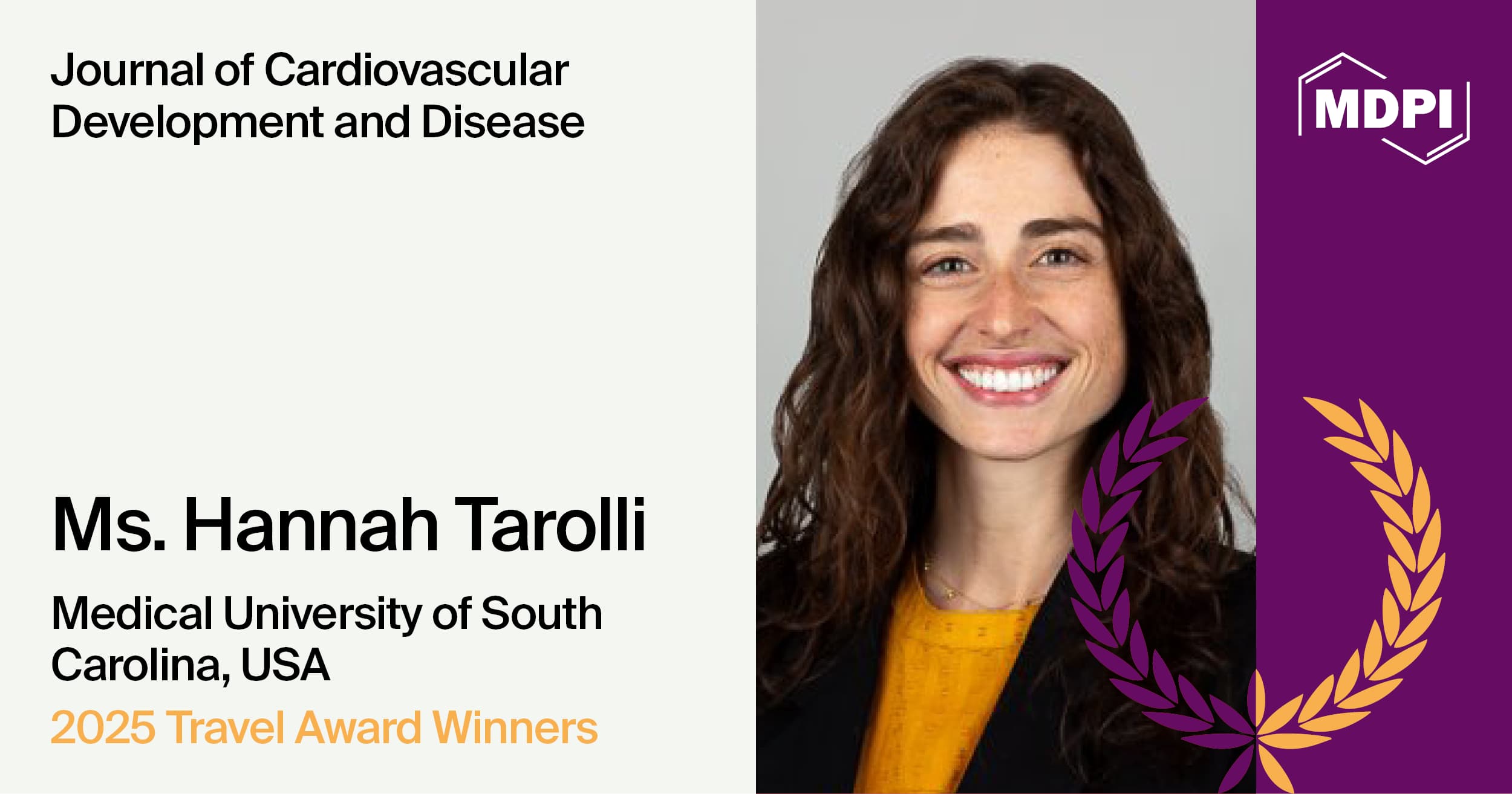
Interview with Ms. Hannah Tarolli—Winner of the Journal of Cardiovascular Development and Disease Travel Award
Ms. Hannah Tarolli is a PhD student at the Medical University of South Carolina, USA. Her research focuses on the mechanisms of cardiovascular development in mice. We would like to congratulate Ms. Hannah Tarolli for winning the JCDD 2025 Travel Award. The following is an interview with Ms. Tarolli:
1. As the winner of this award, is there anything you would like to express?
First, I would like to extend my sincere thanks to JCDD for this incredible opportunity. I am honored to receive this travel award and excited to share my research during a platform presentation at the ICDAR Meeting as a result. Next, I would like to thank my mentor, Dr. Andy Wessels, for his support throughout my research and this application process. Finally, I would like to thank my lab mates for their teamwork and comradery.
2. How did you first learn about this award, and what motivated you to apply?
As a contributing author on a published manuscript in JCDD, I receive email updates, which is where I initially heard about the award. Given the unknowns and uncertainties of the current funding situation, I wanted to apply for this award. The conference I am therefore able to attend is very collaborative and extremely applicable to the research I do in the Wessels Lab.
3. Could you introduce your current research direction and provide an update on your progress? In your opinion, what will be the hot topics in your field over the next few years, and why?
My research focuses on mechanisms of cardiovascular development in mice. More specifically, my lab examines the various cell lineages that are important for development. I am looking at the expression patterns within these different cell lineages of a specific transcription factor, SOX6, that has not yet been researched in embryonic heart development. Additionally, I am investigating why some heart defects develop due to conditional deletions of Sox6 in certain cell lineages.
As for hot topics in the field, I think more researchers will begin looking into the effects of maternal health and behavior on embryonic cardiovascular development. Consequently, they will also explore ways to combat the development of heart defects in these types of environments.
4. What qualities do you believe are essential for a young researcher?
Tenacity, resilience, and flexibility. Science is ever-changing and constantly advancing while experiments continue to be unpredictable at times. That being said, a scientist must persevere through and bounce back from their failures with an open mind ready to adapt.
5. What is your preferred way of sharing your research with the community?
I simply love speaking to people in person about my research, whether through presentations at events or everyday interactions.
6. We noticed that you have published a manuscript in JCDD. How would you evaluate the manuscript publication process in the journal?
Although I was not the primary contributor dealing with the publication process, the journal was clear and concise in their communication and reasonably quick during the process.
With open access publishing increasing in popularity, I not only look forward to scientific research being more readily available for the general public but also having the ability to discover and encourage the science community at large.
